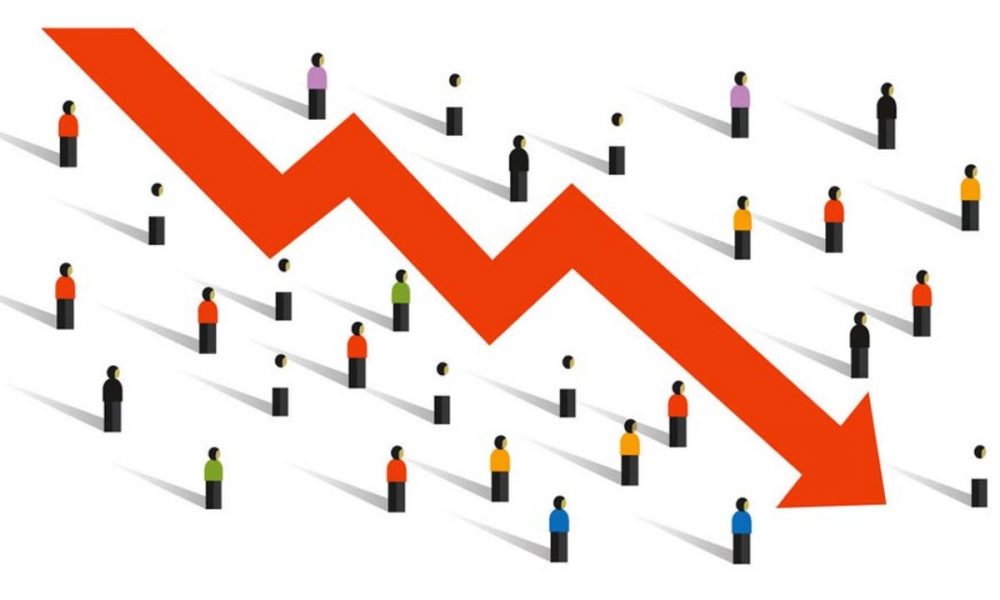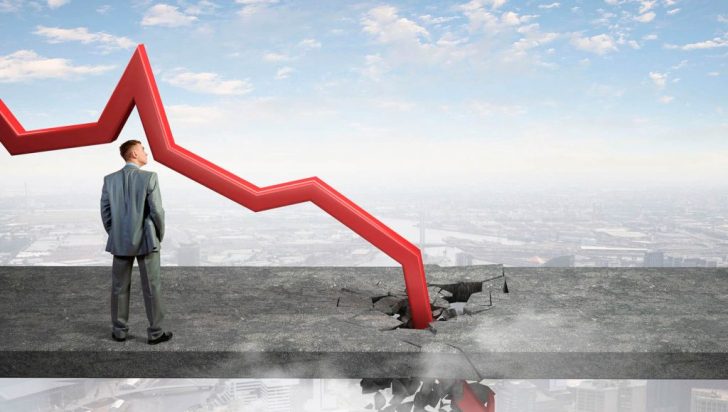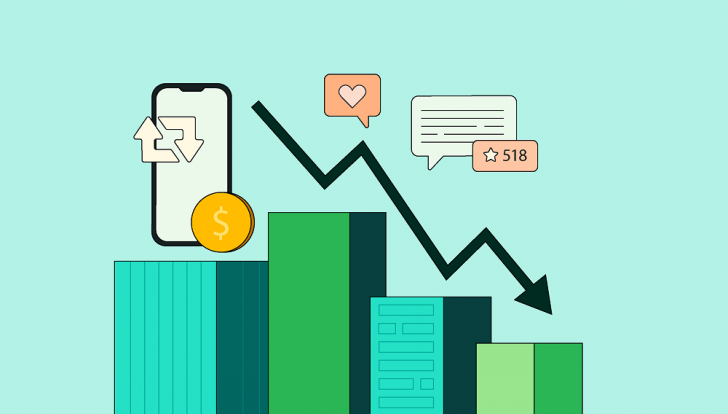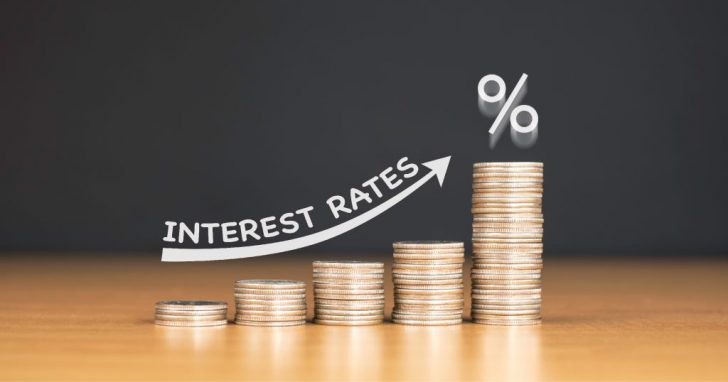
Why Deflation is Bad for the Economy

Deflation is caused by a decrease in demand for goods and services or an increase in supply. When prices fall, consumers tend to delay purchases in hopes of getting a better deal later, leading to decreased spending and, ultimately, a slowdown in economic growth.
Deflation can also increase the real value of debts and hinder investment, leading to a vicious cycle of decreased demand, decreased economic activity, and, potentially, a recession.
This situation is the opposite of inflation, which occurs when prices rise. While inflation is widely regarded as an opposing economic force, deflation can be equally detrimental. Below are some of the many reasons why deflation is bad for the economy.

Shutterstock/ iStock | The deflation that took place at the outset of the Great Depression was the most dramatic that the U.S
Reduced Consumer Spending
One of the main reasons why deflation is bad for the economy is that it can lead to a decrease in consumer spending. When prices fall, consumers tend to delay purchases, hoping to take advantage of even lower prices.
This postponement of purchases can severely impact businesses, leading to decreased sales and job losses. If the trend of deflation persists, it can lead to a vicious cycle of reduced demand, lower sales, and job losses, ultimately leading to a recession.
Increased Debt Burden
Deflation can also lead to an increase in the debt burden for individuals and businesses. When the prices of goods and services fall, the value of money increases. This means that the amount of money owed on a debt, such as a mortgage or a business loan, increases in real terms. This can make it harder for individuals and businesses to repay their debts, leading to defaults and bankruptcies.

Ronnie Gomez/ Sprout | If inflation is the genie, then deflation is the ogre that must be fought decisively
Hindered Economic Growth
Another reason why deflation is bad for the economy is that it can hinder economic growth. When prices fall, businesses may delay investment in new equipment, technology, or research and development, hoping to wait for lower prices. This delay in investment can lead to decreased productivity and innovation, ultimately leading to slower economic growth.
Additionally, deflation can make it harder for governments to implement expansionary monetary policies, such as lowering interest rates or increasing the money supply, to stimulate economic growth.
Increased Real Interest Rates
Deflation can also lead to an increase in real interest rates. Real interest rates are the nominal interest rates adjusted for inflation. When inflation is low or negative, as it is in the case of deflation, real interest rates can become higher than nominal interest rates.
This means that even if nominal interest rates are low, borrowers may face higher borrowing costs in real terms, leading to decreased investment and economic growth.

Ragan/ iStock | When there’s deflation, it means that although most markets are shrinking
Economic Uncertainty
It can also create uncertainty in the economy. When prices fall, businesses and consumers may become uncertain about the economy’s future direction. This uncertainty can lead to decreased confidence, further reducing consumer spending and business investment.
Additionally, deflation can create an expectation of further deflation, leading to a deflationary spiral, where consumers and businesses continue to delay purchases, ultimately leading to a recession.
More in Business
-
`
The Push for Tax-Free Tips in America – A Win or a Risk?
Tipping has long been a fundamental part of the American service industry, providing essential income for millions of workers. However, the...
February 20, 2025 -
`
Matthew Perry Foundation Launches Addiction Fellowship at MGH
The impact of addiction on individuals and families is profound, and the need for specialized medical care in this field has...
February 13, 2025 -
`
Celebrity Couples Who Have Ended Their Relationships in 2025
2025 has already seen its fair share of celebrity breakups, and the year is just getting started. From heartfelt announcements to...
February 6, 2025 -
`
How Trump’s Policies Will Reshape Artificial Intelligence in the U.S.
The United States witnessed a significant political shift as Donald Trump took the presidential oath once again. His return to the...
January 31, 2025 -
`
Millie Bobby Brown Shuts Down Age-Shamers with a Powerful Message
From the moment Millie Bobby Brown first appeared as Eleven in “Stranger Things,” she captured hearts worldwide. But growing up in...
January 25, 2025 -
`
Why Outsourcing Payroll Services Is a Smart Business Move
Managing payroll is no small task—it’s a crucial part of any business that ensures employees are paid accurately and on time....
January 15, 2025 -
`
These AI Stocks Should Be on the Watch List of Investors in 2025
The buzz around AI stocks is growing louder than ever. With artificial intelligence shaping industries like healthcare, finance, and tech, smart...
January 8, 2025 -
`
Why the Starbucks Workers Strike Is Expanding Across U.S. Cities
The Starbucks workers’ strike has gained significant momentum, with employees in more U.S. cities joining the movement to address unresolved issues...
January 2, 2025 -
`
Are Shawn Mendes and Camila Cabello Still Close After Breakup?
The connection between Shawn Mendes and Camila Cabello continues to intrigue fans worldwide. Their shared history, from chart-topping collaborations to a...
December 24, 2024















You must be logged in to post a comment Login